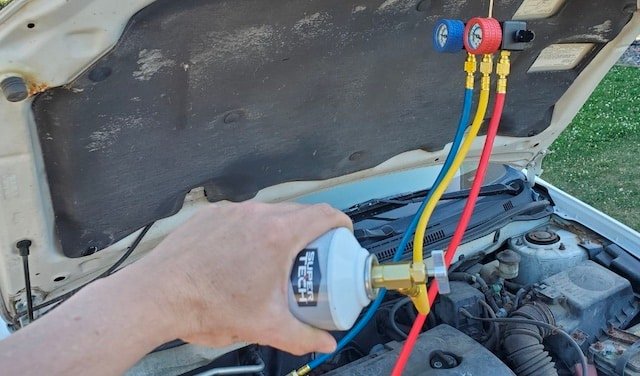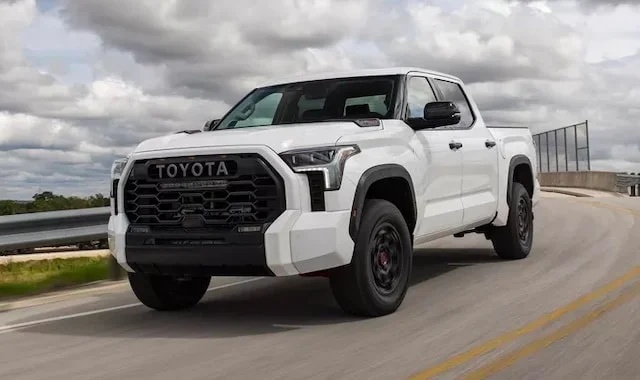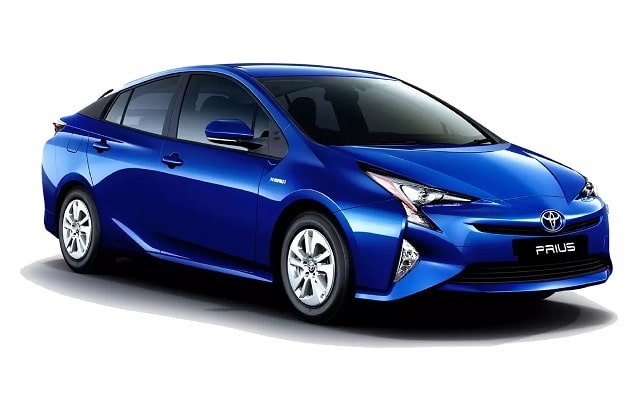During the hot summer months, you’d just want to turn on your car AC and sink into your seat as you enjoy the cool soothing breeze. But things don’t always work that way and you may end up a sweaty mess in your own vehicle.
Chances are you’ve checked and confirmed that your AC is running, but you’re not getting any of the cool breezes that usually come with a functioning AC.
There are several reasons, and the most common won’t cost you a lot, but you should be ready to spend some bucks to get the system working just as efficiently as before.

How the Car AC System Works
The AC system is a complex system consisting of hoses, lines, a compressor, a condenser, an evaporator, valves, a blower fan, and you also have the heater system hooked up to the AC system.
In simple terms, the AC system works with refrigerant which it compresses and heats, and then allows to decompress and condense into a liquid which causes rapid heat loss. The process will absorb heat from the car’s cabin which cools the cabin.
To achieve this, the AC system makes uses of a compressor which runs off an engine belt. There is also a condenser that cools down the refrigerant. Then you have the evaporator and finally, the blower fan that actually distributes the air throughout the cabin.
If your AC is running but not blowing air, then one of the components here failed.
Toyota Camry AC Not Blowing Cold Air: Likely Causes
- AC System Needs a Recharge
- Refrigerant Leak
- Blower Fan Failure
Toyota Camry AC Not Blowing Cold Air: How to Fix
Recharge the AC Refrigerant
With the AC turned on, you’re supposed to get a cool breeze blowing through the vents. If that doesn’t happen but you notice that the AC still works, then there are chances that the air conditioner needs to be recharged.
You can tell this by checking the compressor. If the system is low on refrigerant, the compressor will cycle on and off frequently. Also, check the compressor clutch. If the compressor clutch fails to engage, then it is likely that the AC system is too low on refrigerant. It is also possible that the compressor clutch will fail to engage if there is a blown fuse or some problems with the relay. However, having a low level of refrigerant is the most likely cause and should be what you check first.
Getting the system recharged is a tricky process. You could actually do it yourself with a DIY kit, however, you should ensure that no refrigerant gets into the air as it is hazardous. You could also get a professional to handle it for you rather than going through all the trouble.
If get the system recharged on your own. Ensure you choose a UV kit to check for minor leaks before going ahead to give the recharged system a try.
Check for Refrigerant Leaks
The AC problem could be due to a refrigerant leak which can’t be solved by recharging the system. The system could be low on refrigerant so after recharging it, you should check for leaks. You can also do this before recharging the system.
It could be best to let your AC mechanic inspect the system for leaks but you should be able to notice this yourself.
If there is a refrigerant leak in the AC system, you might notice the following signs
- An audible click when the AC is turned on
- The AC compressor cycles on and off frequently
- Hissing sounds from the AC system when the engine is turned off
- Oil residue around the AC hoses and pipe fittings
If you notice a refrigerant leak, then you should have the mechanic inspect the entire AC system and check other components for leaks. All faulty components should be repaired or replaced. The AC system would also have to be flushed and the lost refrigerant fluid replaced to get the AC system cooling effectively.
This process should only be handled by a mechanic as refrigerant is a very toxic chemical that could lead to serious health problems if not handled properly.
Check the Blower Fan
The blower fan is meant to distribute the air around the cabin and ensure you get that cool breeze going. If it fails then you won’t get any air coming out of the vents. Checking the blower fan should be easy but diagnosing the reason for the failure might be tricky.
First, you would have to check for a blown fuse. If the fuse corresponding to the blower fan is blown, then the fan won’t turn on. You should check the fuse box and use the user manual to locate the blower fan’s fuse. Check if it is blown and replace it if so. You should also try to find out why the fuse got bad in the first place. This might be best left to your mechanic.
If the fuse is good, then you would have to check the wiring around the blower fan. Chances are the connections are broken or the wires are frayed. If you notice any suspicious signs on the wires, you might have to get them repaired or replace the AC system working again.
If both the fuse and the wiring look great, then you could be dealing with a blower fan failure. The motor of the blower fan might have failed and would have to be replaced. This is a big fix that would cost you some extra so you should have your mechanic check the system to confirm before going ahead.
Final Thoughts
Chances are you’re already conversant with the car’s AC system which is why you’re searching for solutions that you could apply on your own. If you are, then you should be able to handle most things here without extra help. If not, then you’re better off allowing your mechanic to perform all the necessary inspections and fixes that would get your AC system working again.







